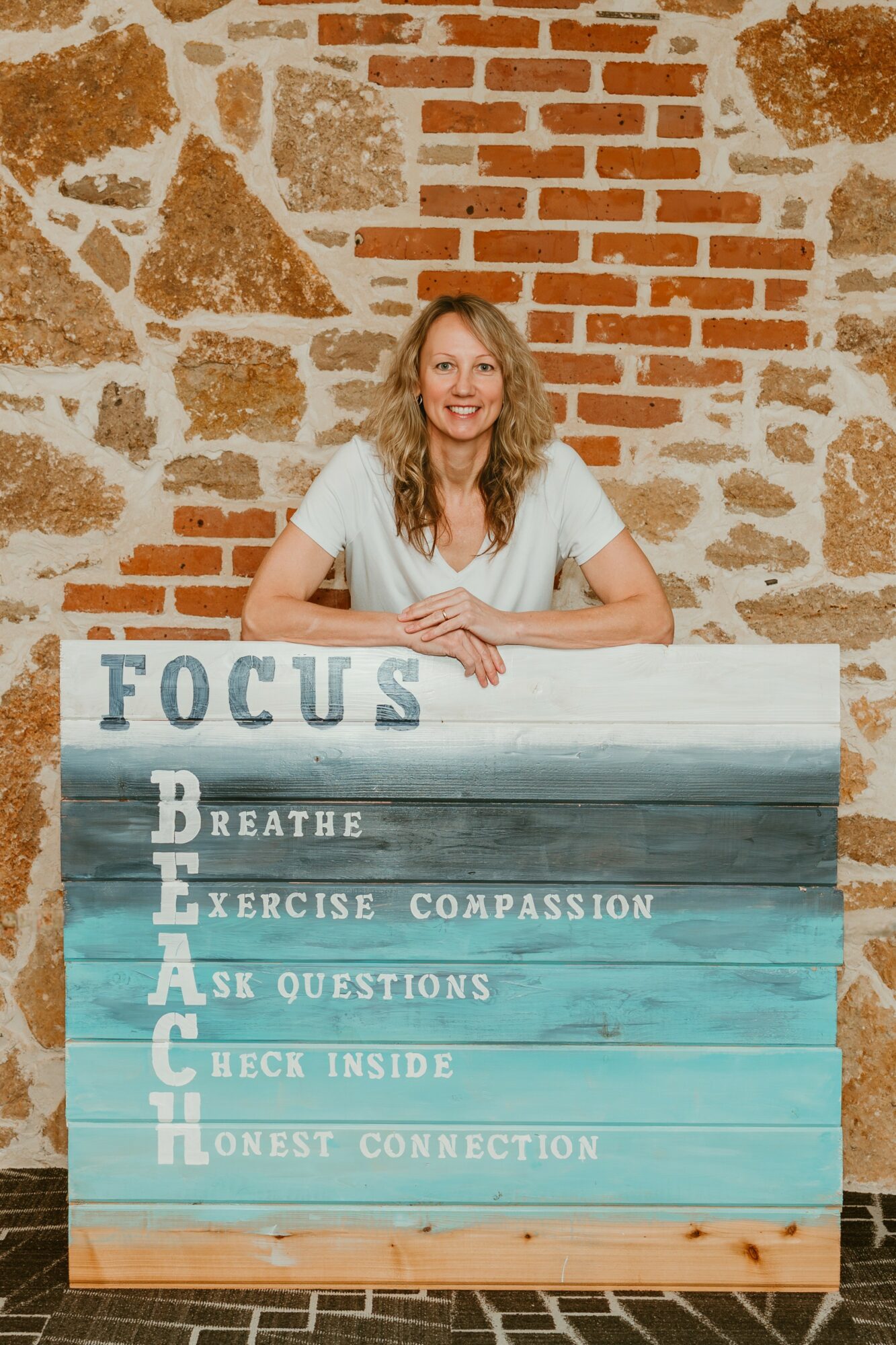

Today we’d like to introduce you to Rebekah Johnson
Hi Rebekah, thanks for sharing your story with us. To start, maybe you can tell our readers some of your backstory.
Well, my journey into the field of counseling and mental health started a bit organically, but looking back, I can see how everything aligned. After I experienced a significant amount of confusion and disillusionment in college, I began exploring the fields of psychology, sociology, and philosophy. To this day I read, watch documentaries, and listen to podcasts and interviews with professionals in those fields. I feel very fortunate to have access to so much research, data, and professional experience shared freely by major experts.
There were times in my life when I faced challenges with mental health, and when I finally learned to seek support, the help I received from counselors and mental health professionals made a world of difference. That’s when I truly understood the profound impact mental health care can have on someone’s life—how it can empower people to heal and grow.
I decided to pursue a degree in psychology and counseling because I wanted to be that support for others. During my studies and training, I saw firsthand the different ways people struggle with their mental health and how personalized care is so important.
Ultimately, I knew that counseling was the right field for me because it combines my natural inclination to listen, explore, study, and research along with my desire to make a meaningful, positive impact on people’s lives. What excites me most about the field is how much you can grow as a professional while also helping others on their journey toward better mental health.
Alright, so let’s dig a little deeper into the story – has it been an easy path overall and if not, what were the challenges you’ve had to overcome?
The complexity of human emotions and behaviors is often challenging, but also a source of growth for me. There are days when solutions aren’t obvious, and I have to dig deep, reflect, and rely on the therapeutic process. Sometimes I’ve got to get back to researching, learning, and consulting to improve the customization of care for different individuals and the unique problems that emerge throughout the process.
Can you tell our readers more about what you do and what you think sets you apart from others?
As a mental health professional, I believe in the power of creative expression as a tool for emotional and psychological well-being. One of the approaches I encourage clients to explore is connecting with their bodies and emotions through creative outlets. This helps foster a deeper understanding of themselves and can be a source of healing and growth.
One way I model this for my clients is by pursuing songwriting. I use songwriting not only as a personal tool for self-reflection and emotional processing, but also as a way to stay in tune with my own thoughts and feelings. Writing songs allows me to express complex emotions in a tangible form, and it helps me process experiences that might otherwise feel difficult to articulate.
By sharing this practice with my clients, I demonstrate how creative activities like songwriting can serve as a safe, non-judgmental way to explore emotions, tap into inner wisdom, and enhance personal growth. I encourage clients to find their own creative outlets—whether it’s music, art, writing, or any other form of expression—to deepen their emotional connection and promote overall well-being.
Before we let you go, we’ve got to ask if you have any advice for those who are just starting out?
If you’re just starting out in the mental health field, there are a few key pieces of advice I would offer:
1. Cultivate Empathy and Active Listening: One of the most valuable skills you can develop is the ability to truly listen to your clients. This goes beyond hearing their words—it’s about understanding their emotions, validating their experiences, and being present in the moment with them. Practice empathy and approach each person with an open mind and heart.
2. Practice Self-Care: The mental health field can be emotionally demanding, and it’s crucial to take care of your own well-being. Regular self-care practices, such as setting boundaries, seeking supervision or support, and engaging in activities that recharge you, are essential to avoid burnout and maintain your ability to help others.
3. Learn Continuously: The mental health field is always evolving, and it’s important to stay curious and open to learning. Whether it’s through formal education, reading, attending workshops, or learning from colleagues and clients, continuous growth will help you refine your skills and provide the best care possible.
4. Build a Support System: Surround yourself with a network of supportive peers, mentors, and supervisors. Being part of a community where you can share experiences, discuss challenges, and receive guidance can help you navigate the difficulties of the profession and prevent isolation.
5. Develop Cultural Competence: Mental health is not a one-size-fits-all approach. Recognize that each client comes from a unique background, and it’s important to understand and respect cultural differences. Engage in learning about diverse populations, and approach each person’s experiences with sensitivity and respect.
6. Embrace Vulnerability and Authenticity: Clients can often sense when you’re being authentic, and creating a space where you’re genuine can help build trust. While maintaining professional boundaries, allowing yourself to be human and vulnerable at times can help clients feel more comfortable opening up to you.
7. Reflect on Your Own Growth: As a therapist or mental health professional, you are on your own personal journey as well. Reflect on your own experiences, values, and biases so that you can bring your best self to the work you do. Your own growth will enrich your ability to help others.
8. Understand the Importance of Boundaries: In the mental health field, it’s easy to get emotionally involved with clients, especially when you form close connections. However, maintaining professional boundaries is crucial for both your well-being and the therapeutic process. Establish clear limits and know when to seek support or supervision.
9. Be Patient with Yourself: Starting out in the field can feel overwhelming at times, especially when you’re faced with tough cases. Understand that growth as a professional takes time. Don’t be too hard on yourself if you don’t have all the answers right away. Experience will be your greatest teacher.
By integrating these principles into your practice, you can create a fulfilling, balanced, and effective career in the mental health field while also prioritizing your personal growth and well-being.
Contact Info:
- Website: https://www.focusbeachcounseling.com




Image Credits
Living in Light Photography










